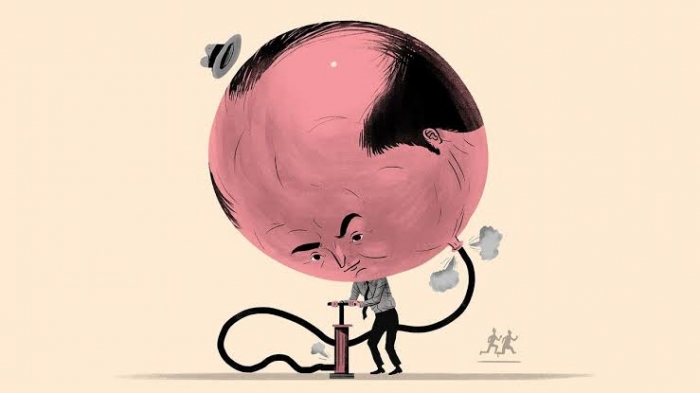Confidence is contagious. Someone declaring a position with ringing certainty is more likely to inspire than someone who hedges their bets. “We may fight them on the beaches; it depends a bit on the weather,” would have been a lot less persuasive. What is true of Churchill’s wartime oratory is true in less dramatic circumstances. A study by Matthias Brauer of the University of Mannheim and his co-authors analysed language used in letters from activist investors; it found that more confident letters were associated with more successful activist campaigns.
Confidence confers status. In a study published in 2012 by Cameron Anderson of the University of California, Berkeley and his co-authors, students on an MBA course were asked to take an online survey before they started classes. The questionnaire asked participants to say if they recognised certain names, events and works of art; unknown to them, the options included both genuine choices, such as Maximilien Robespierre and “Pygmalion”, and made-up ones like Bonnie Prince Lorenzo and “Windemere Wild”. Overconfident students who had picked more fictitious entries turned out to have the most influence on their classmates, according to end-of-term ratings.
Confidence without competence will only get you so far. If you go around telling people how much you love “The One Musketeer”, you will probably not be that influential. But competence without confidence imposes limits, too. Self-doubters are less likely to put themselves forward for big promotions. Irrational levels of self-belief are a hallmark of many successful founders. A recent paper by Terhi Maczulskij and Jutta Viinikainen, two Finnish academics, looked at the relationship between personality traits and employment status in Finland, and found that higher self-confidence was predictive both of entrepreneurship and of entrepreneurial success.
As much as confidence brings rewards, however, it also brings danger. Work by Ulrike Malmendier of the University of California, Berkeley and Geoffrey Tate of the University of Maryland has found that overconfident bosses are much more likely to undertake acquisitions (though they are more averse to external financing, believing that it undervalues their businesses). Their acquisitions are also more likely to destroy value.
Another paper, by Guoli Chen of INSEAD and his co-authors, looked at the relationship between CEOs’ confidence and their earnings forecasts. The researchers found that bosses with inflated levels of self-belief were slower to adjust their forecasts when they proved inaccurate. “Put simply,” they conclude, “overconfident executives who make mistakes continue to be wrong for longer.”
In an ideal world, confidence would be distributed evenly and in just the right quantities: an optimally confident person is someone secure enough to trust their own judgment and to accept that it is fallible. In practice, confidence is distributed very lumpily and is also susceptible to feedback loops.
A confident person (“I’m so great”) is liable to place even more faith in their own abilities if they have success (“I’m so great and here’s the job title to prove it”). One study by Nathanael Fast of the University of Southern California and his co-authors tested people’s willingness to bet on how they would do in a difficult general-knowledge quiz. Participants who were asked how much power they had at work before making their bets staked more (and lost more) than people of similar seniority who were only asked about their roles after deciding what to gamble.
This messy picture resolves into two broad propositions for managers to reflect on. First, puffed-up people need guardrails. A new paper by Priscilla Kraft of WHU, a German business school, and her co-authors finds that overconfident bosses of American high-tech firms have a better record of making breakthrough innovations if they are constrained by powerful and expert boards.
Second, self-doubters need encouragement to fulfil their potential. That might come from managers, mentors or even themselves. A study by Joris Lammers of the University of Cologne and his co-authors primed some participants in a mock interview process to think of times when they had wielded power. Independent evaluators who were not aware of the experiment found that they wrote more persuasive cover letters and did better in face-to-face interviews than other applicants. Confidence can be natural. It can also be a trick.


































































